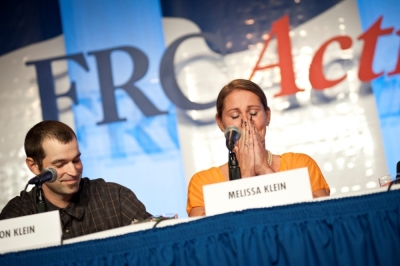Supreme Court rejects anti-Christian animus, again

The past twelve months have been anything but a cake walk for religious bakers. First, we had the seven year fight of Masterpiece Cakeshop’s Jack Phillips that initially led to a victory at the Supreme Court, only to be followed by ongoing harassment by Colorado officials and a transgender activist. They seem intent on proving that they really are driven by animus.
Then there’s the recent story about a bakery in Ohio that was targeted for protests and slander. They were just awarded $11 million by a jury after Oberlin College officials were shown to have instigated their students to believe that the owners of the bakery were racists.
Finally, on Monday, the Supreme Court gave what is, to many, an unexpected kind of victory to Melissa and Aaron Klein, the owners of “Sweet Cakes by Melissa” in Gresham, Oregon.
Now technically, the Court didn’t rule in their favor. The justices instead declined to hear the case, telling Oregon’s courts to rethink their ill-treatment of the Kleins in light of the Masterpiece Cakeshop decision.
The Klein’s ordeal began back in 2013 when Rachel Bowman-Cryer visited their Oregon bakery to order a wedding cake for her upcoming wedding to her partner, Laurel. The Kleins told Bowman-Cryer that their religious beliefs wouldn’t allow them to fill that request.
Seven months after the visit, Bowman-Cryer and her partner filed a complaint with Oregon’s Bureau of Labor and Industries. The administrative law judge appointed by the then-Labor Commissioner, Brad Avakian, sided with Bowman-Cryer and her partner and awarded them $135,000 in damages.
The ruling was then reviewed by Avakian who, even before his Bureau filed a formal complaint against the Kleins, publicly stated “Everyone has a right to their religious beliefs, but that doesn’t mean they can disobey laws already in place.”
Not surprisingly, Avakian not only affirmed the financial award, he prohibited the Kleins from ever speaking “publicly about not wanting to bake cakes for same-sex weddings based on their Christian beliefs.”
An Oregon appeals court upheld the Bureau of Labor’s actions, and the Supreme Court of Oregon declined to hear the case. So the Kleins, represented by the First Liberty Institute, appealed to the U.S. Supreme Court.
On Monday, the Court declined to hear the case, at least for now. Instead, it decided to vacate the decision by the Oregon appeals court and ordered it to reconsider the matter in light of the Supreme Court’s ruling in the Masterpiece Cakeshop case.
In Masterpiece, of course, the majority on the high court declared that “religious hostility on the part of the State itself” is a factor that violates the “State’s obligation of religious neutrality” under the Free Exercise Clause. That opinion cited numerous examples of conduct by Colorado officials that clearly demonstrated “religious hostility.”
By vacating the Oregon court’s decision and instructing it to apply Masterpiece to the Sweet Cakes case, the Supreme Court did at least two things.
First, as the First Liberty Institute put it, the Court “reaffirmed an essential principle: that everyone is entitled to a fair trial before an unbiased judge”—a benefit the Kleins clearly did not enjoy in Oregon. The second thing the Court’s ruling does is leave open the possibility of hearing the case in the future.
Given the record of hostility toward the Kleins and their beliefs, the Oregon court could rule for them on narrow grounds without addressing their broader religious freedom claims. But if it doubles down, like the state of Washington did in the case of Barronelle Stutzman, the Kleins could once again appeal to the Supreme Court. The current makeup of the Court seems much friendlier to religious freedom than the Court that Jack Phillips visited.
All of this makes the Court’s actions on Monday good news. Not only for Melissa and Aaron Klein and the First Liberty Institute, but for anyone who cares about religious freedom, which should be all of us.
Resources
Ohio bakery awarded $11 million in libel lawsuit against Oberlin College over alleged racial profiling, Holly Yan and Hollie Silverman | CNN | June 11, 2019
Originally posted at Breakpoint.




















